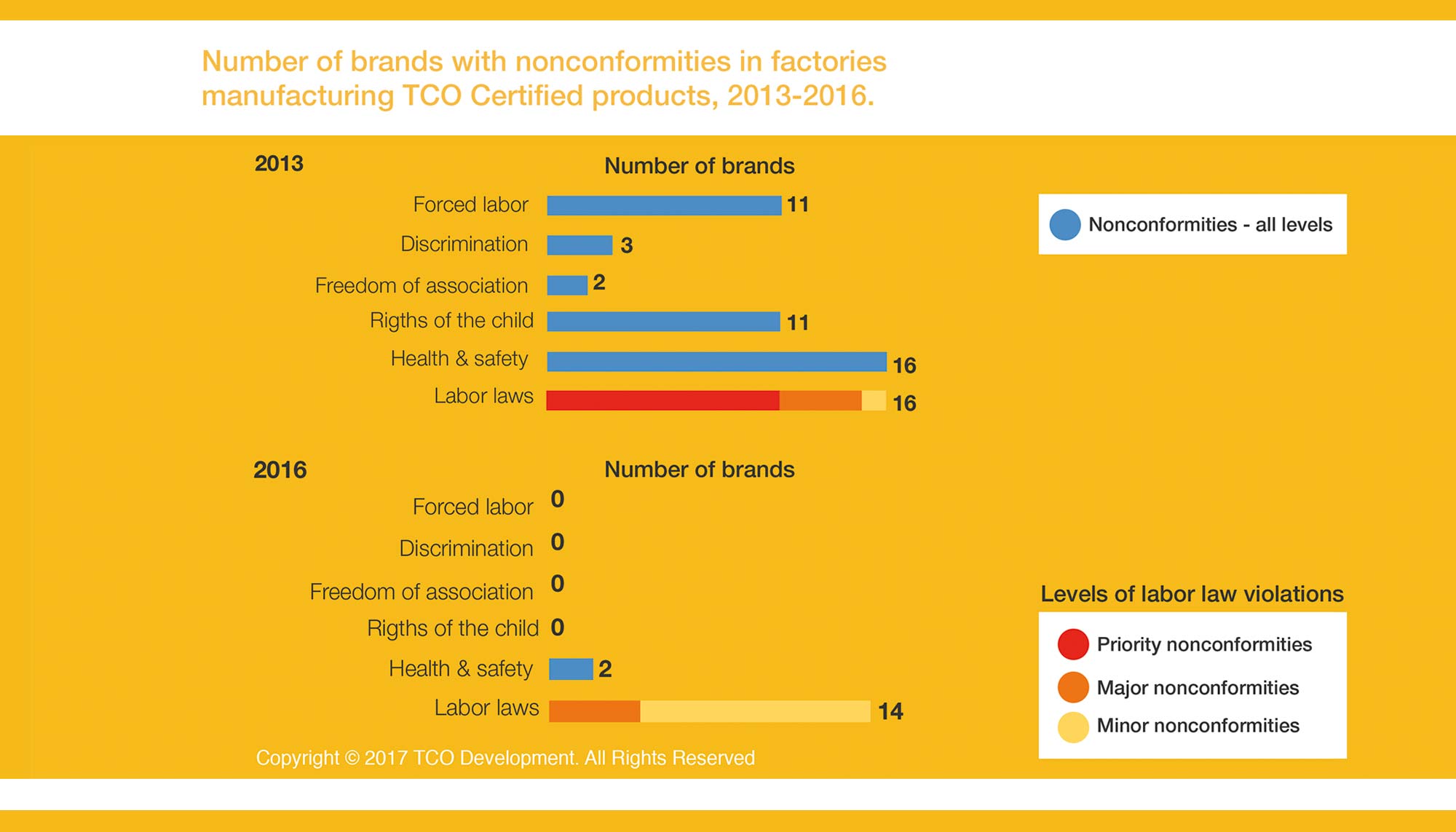The report, Impacts and Insights, measures the most recent effects of the latest generation TCO Certified. The criteria focus on increased brand owner responsibility for supply chain working conditions and conflict minerals initiatives along with a new approach to identifying safer flame retardant chemicals. The current generation of TCO Certified, launched in November 2015, places greater overall responsibility for product and factory compliance on brand owners.
Key findings
Improvements in IT factory working conditions
A case study of 16 brand owners shows improved IT factory working conditions where certified products are manufactured compared with 2013. Improvements were observed in areas such as discrimination and freedom of association. While several improvements were observed, there are frequent issues in excessive overtime in the factories, which is clearly something that will demand our continued attention moving forward.
A paradigm shift in hazardous chemicals
The new generation TCO Certified has also brought about a paradigm shift in use of hazardous chemicals in IT products. For most of the over 100 million registered chemicals, according to the American Chemical Society, the risk to human health and environment is unknown. TCO Certified now includes a new approach to hazardous chemical reduction – moving from a list of banned flame retardant chemicals to a public list of accepted, independently assessed and benchmarked flame retardants.
Proactive Industry initiatives beyond TCO Certified
Beyond compliance with TCO Certified criteria, we also carry out an annual review with brand owners to assess their additional proactive work in the field of socially responsible manufacturing. Reviews show a greater engagement in sustainability overall, but a need for more action increasing brand owner knowledge about their supply chain and investigating ways prevent future nonconformities.





